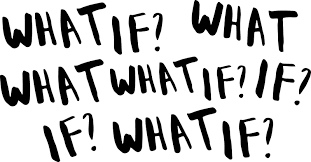Here’s a quick strategy get students back in the philosophical swing after a festive break.It gets them thinking about a question, then challenges them to re-think in the light of new twists.

The structure is simple: a deliberately vague contestable question, followed by several “what ifs”. It works best when students show their thinking to the first question physically – either moving themselves across the room from the yes to the no side via the “maybe” zone, or moving parts of themselves (e.g. hands on table for yes, under table for no, maybe off the table but level with it for maybe). Each time they can share their reasons, and then you add a “what if” and they can move (or not!) to show if and how their thinking would change.
If someone dreams that you upset them, should you say sorry?
- What if you had recently upset them in real life? Should you say sorry for what your dream self did?
- What if their dream-self had upset your dream-self first?
- What if their real self had upset your real self?
- What if you upset them in your dream, not theirs?
- What if your dream-self acted completely out of character?
- What if your dream-self already apologised in the dream?
- What if your friend woke up halfway through the dream, so they didn’t find out how it ended?
If you win the lottery, but someone else gave you the winning ticket, do they deserve any of the winnings?
- What if they’re already very rich?
- What if you paid them back for the ticket?
- What if you take it in turns to buy each other tickets?
- What if they stole the ticket?
- What if they found the ticket on the floor?
You don’t have to use every “what if” – each will generate new levels of conversation, so it might only need one or two to spark a juicy discussion! Also, be on the alert for “What ifs” that they raise themselves, and which you can then use to see how the whole group respond.
What next?
If your class gets really interested in a particular twist, that can be the time to invite them into a circle to chew it over in more depth.
You could also take a look at existing philosophical questions you’ve got planned in for this year. What “what ifs” could you add to pose fresh challenges and make them assess their original answers? Or add this to your range of facilitation tools for future enquiries, encouraging the group to vary a scenario and see if it changes their thinking.
Best wishes,
Jason & Tom
P.S. Our online classes start up again next week at www.p4he.org We now have Philosophy, Debating, Improv, Young Bards (Shakespeare), Dungeons and Dragons and Writers’ Room slots, with sessions available in the evenings as well as during the day.